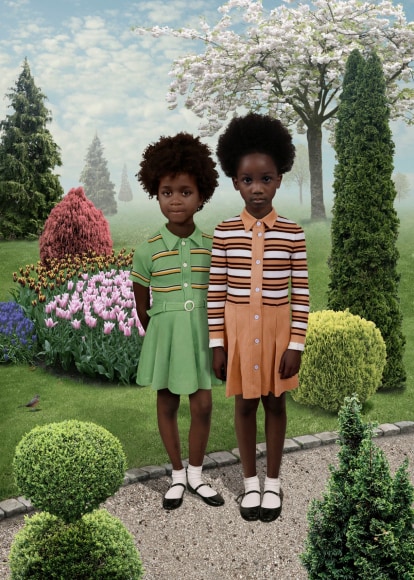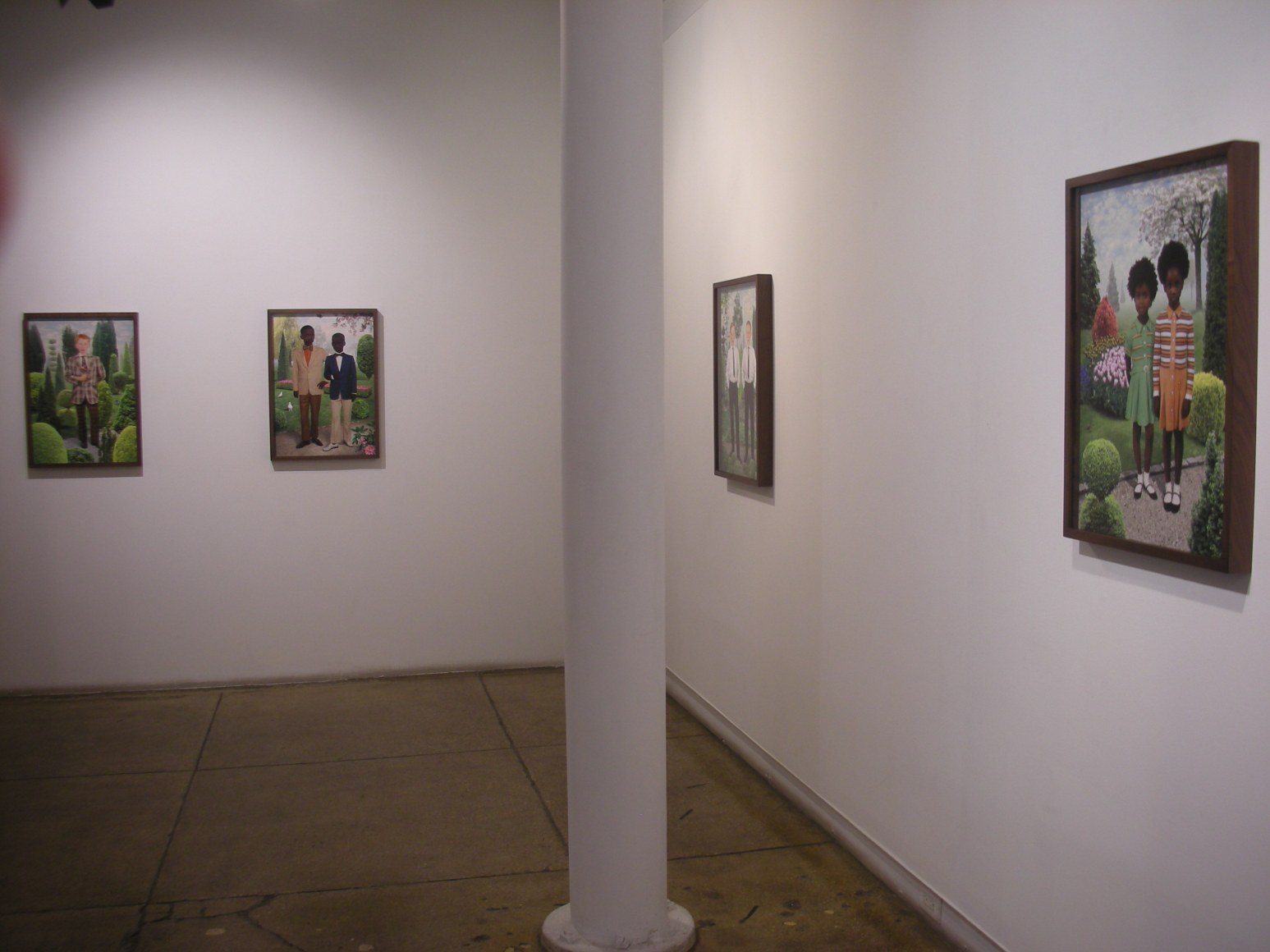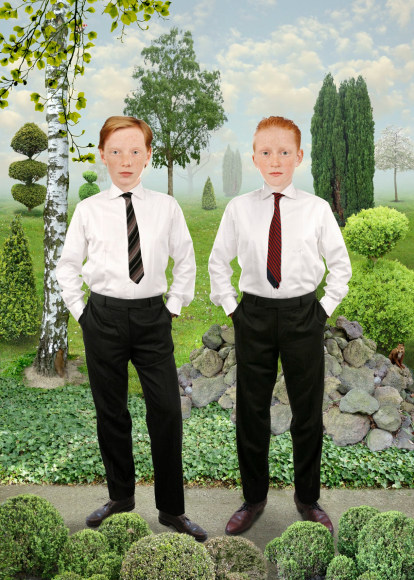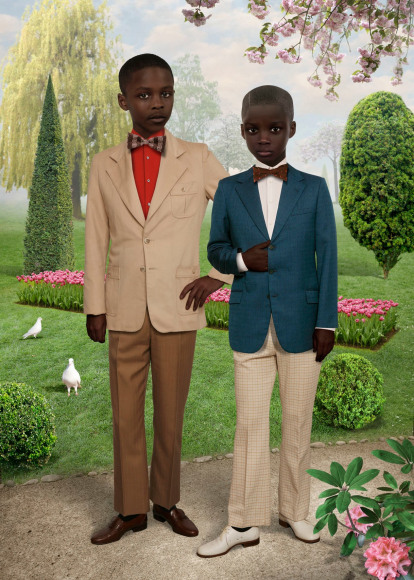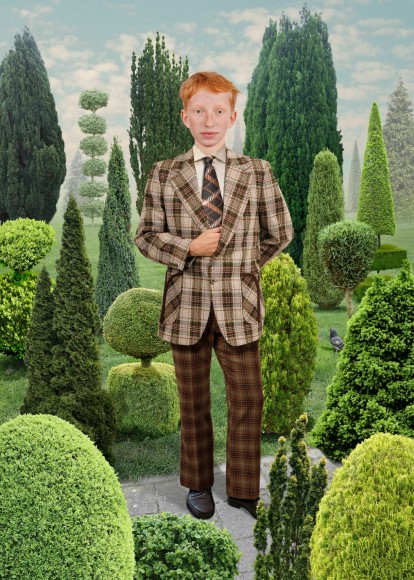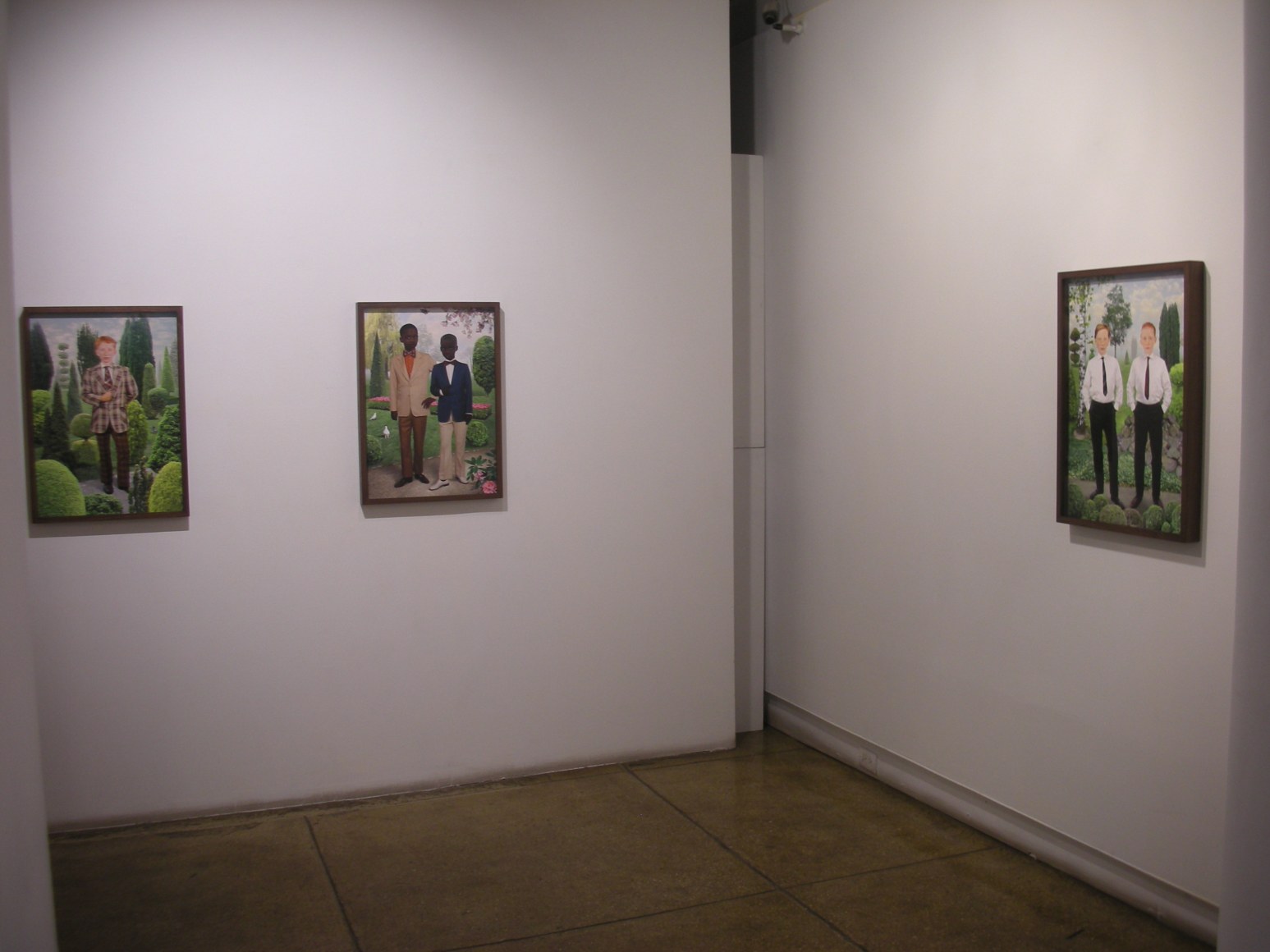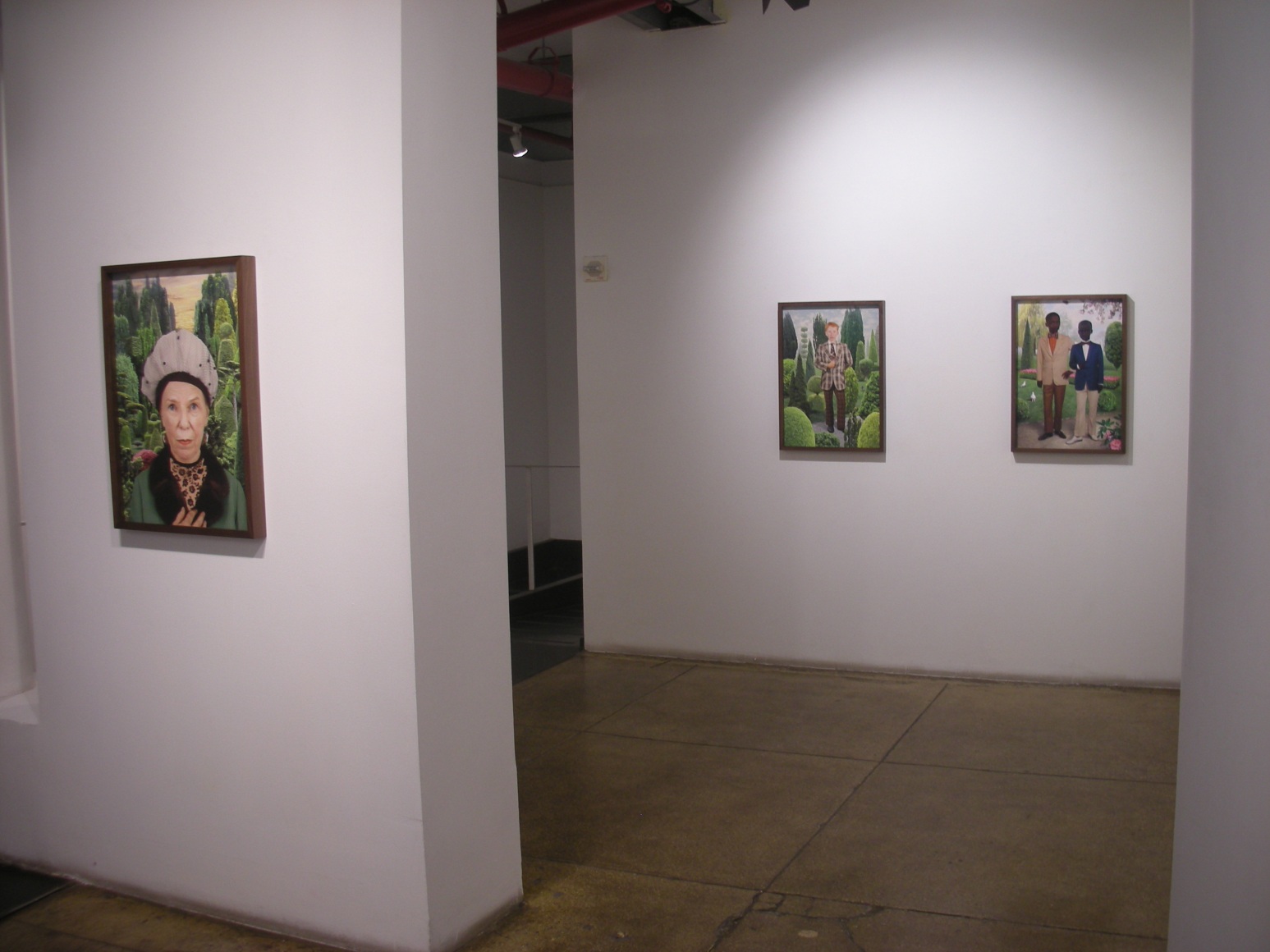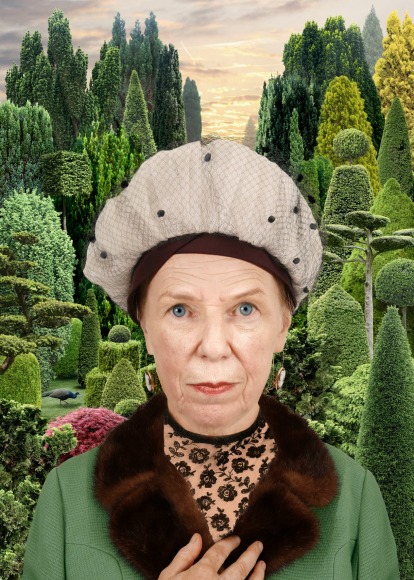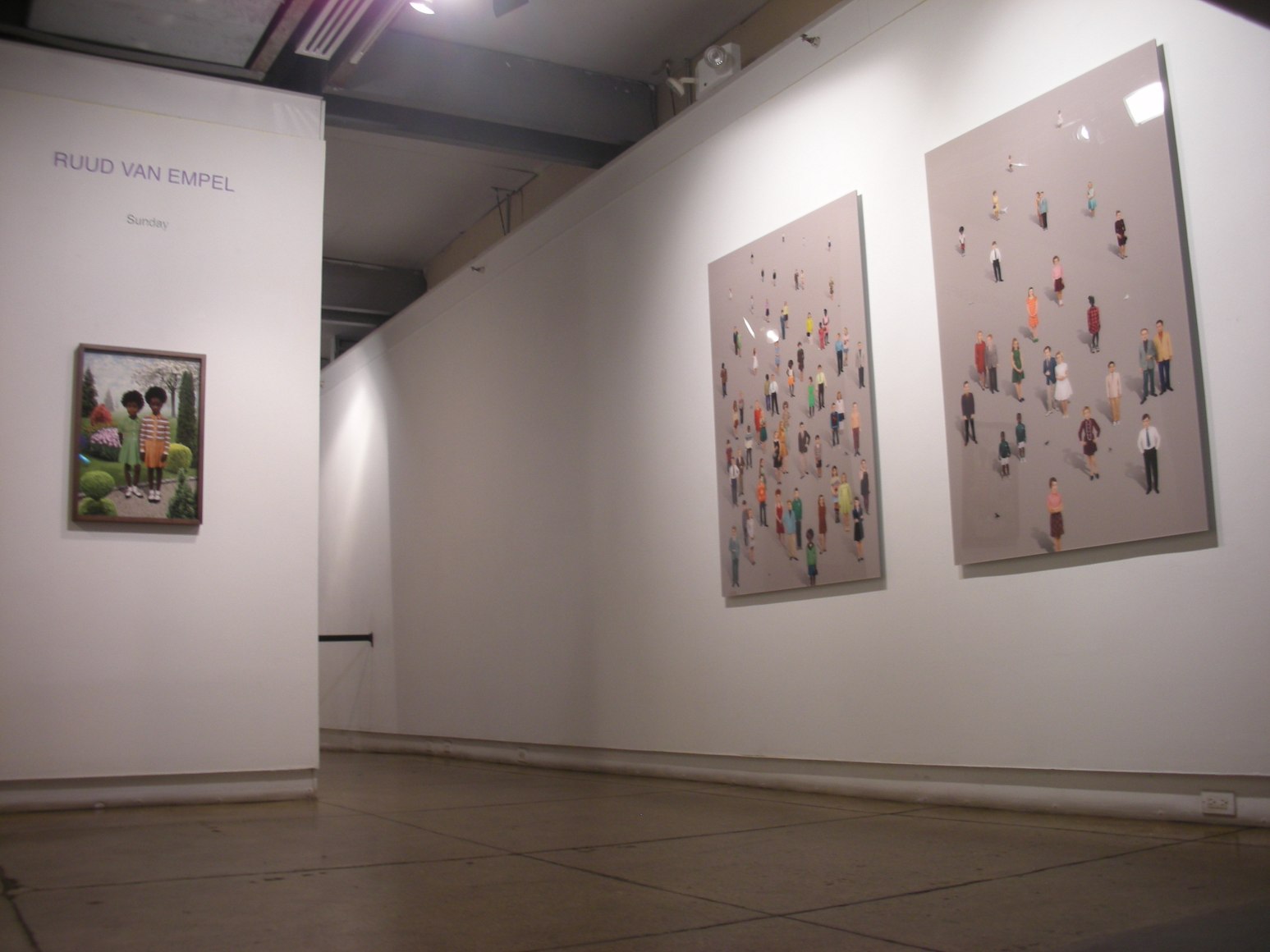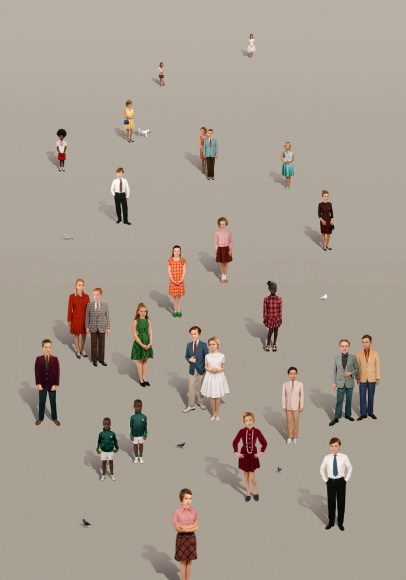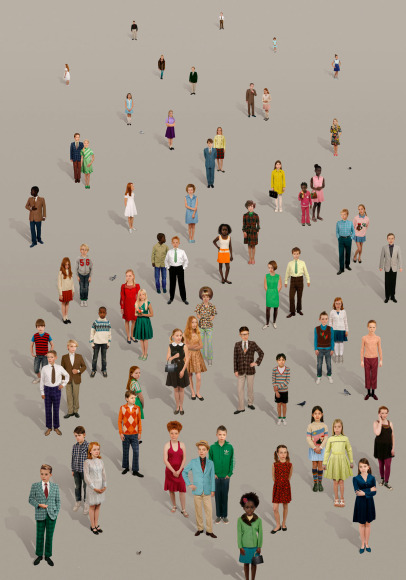Stux Gallery is pleased to announce an exhibition of new works by Ruud van Empel, whose Groninger Museum retrospective will soon be traveling to the Museum of Photographic Arts in San Diego. Renowned for his digitally collaged photographs of children in mysteriously lush paradises, his images confront photography’s authority of authenticity with painterly stylizations and an almost cinematic experience of parallel time frames.
Structural gridlines seem to exist in the multidimensional space in “Landscape”: children wear clothing that symbolically narrate almost all stages of life, their spatial arrangement follows linear perspective, and their shadows result from a uniform light source. However, the figures are set on a flat, abstract background that provides neither complement for the illusion of depth nor confirmed solid ground for the children to stand on. Even though each child has a unique appearance, it is difficult to consider these children as discrete individuals; rather, they are blank, scattered slates, suspended in an abstract terrain merely for light to reflect upon.
A departure from his previous works, children gather in perfectly manicured continental gardens rather than primal nature in van Empel’s new series “Sunday”. However, these weekend strolls in the park are not entirely leisurely. The artificially arranged garden echoes his collaging technique, but gardens are traditionally associated with blissful domesticity rather than enigmatic paradoxes. The wild, natural innocence of the lush foliage that filled his previous works is mutilated and restrained by unnaturally sharp angles and perfectly geometric trims, and hints of instability and unrest are tangibly brewing. The boys appear to be awkward proprietors, not explorers, of the sterile "nature" behind them.
The series also includes a striking image of an elderly woman. Like the children, the woman is dressed at her Sunday best, digitally assembled and positioned at the foreground of a lush landscape. A distant sky burning salmon pink sinks into the background and beyond this world, and a spontaneous assortment of perennials is cut with almost comical impracticality into floating spheres and foreboding, weapon-like sharp points. The image carries an eerie symmetry, as the mountains and large trees appear to part to make way for the woman and the distant light. She has negotiated a new relationship with nature, time, the depletion and importance of innocence, but it’s hard to tell from her quizzical, amused facial expression whether she’s taking it too seriously.

